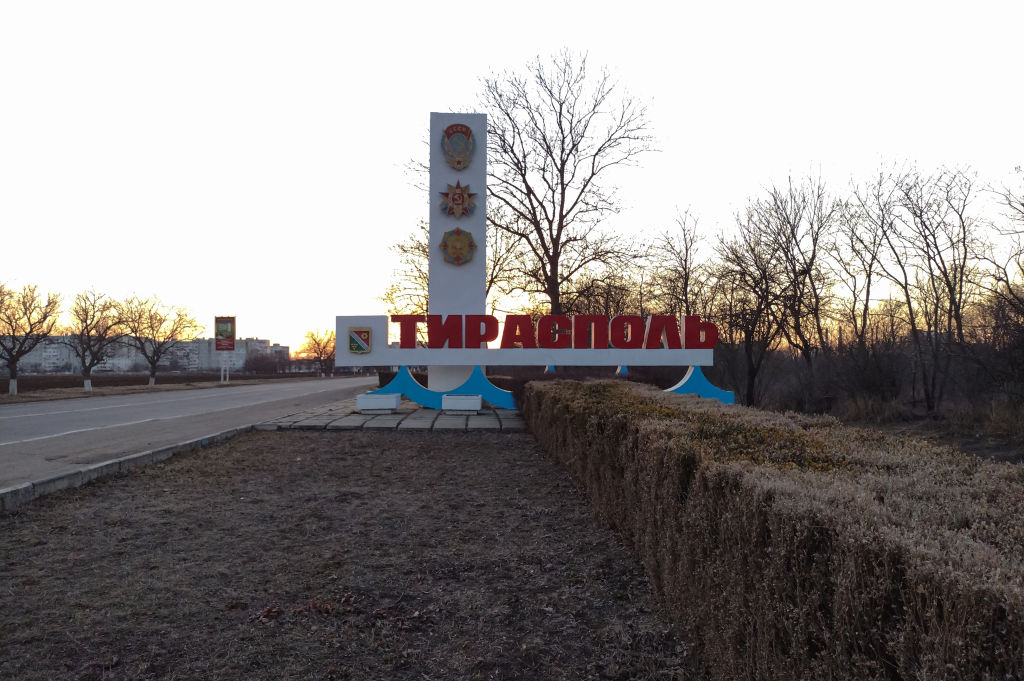Russian attack on Moldova a 'high possibility,' Ukrainian official says


A free daily email with the biggest news stories of the day – and the best features from TheWeek.com
You are now subscribed
Your newsletter sign-up was successful
A Russian attack on Moldova "could be a high possibility," Igor Zhovkva, the deputy head of the office of Ukrainian President Volodymyr Zelensky, said during an appearance on NBC's Meet the Press Sunday.
His warning comes after Russian Maj. Gen. Rustam Minnekayev said Friday that Russia plans to "take full control of Donbas and southern Ukraine" and open up land corridors to Crimea and to the Moldovan breakaway province of Transnistria, where Minnekayev claimed "that the Russian-speaking population is being oppressed."
Russian troops have been stationed in Transnistria since 1992.
The Week
Escape your echo chamber. Get the facts behind the news, plus analysis from multiple perspectives.

Sign up for The Week's Free Newsletters
From our morning news briefing to a weekly Good News Newsletter, get the best of The Week delivered directly to your inbox.
From our morning news briefing to a weekly Good News Newsletter, get the best of The Week delivered directly to your inbox.
Zhovkva's comments echoed concerns Zelensky expressed last Friday when the president said Ukraine "was intended only as a beginning" and predicted that Russian President Vladimir Putin intends "to capture other countries" as well, according to Politico.
U.S. Deputy National Security Adviser Jon Finer, who also appeared on Meet the Press, also weighed in on the question of whether Russia poses an imminent threat to Moldova. Russian forces, Finer said, "are a long way from cities like Odessa and certainly from Moldova. They have a lot of fighting still to do."
Moldova, however, appears to be taking the threat seriously, considering that Russia justified its original invasion of Ukraine as an intervention to protect the Russian-speaking inhabitants of a separatist region. According to Axios, "Moldova's Foreign Ministry summoned Russia's ambassador to the country on Friday to express 'deep concern' over" Minnekayev's comments.
Moldova is not a member of NATO or the European Union.
A free daily email with the biggest news stories of the day – and the best features from TheWeek.com
Grayson Quay was the weekend editor at TheWeek.com. His writing has also been published in National Review, the Pittsburgh Post-Gazette, Modern Age, The American Conservative, The Spectator World, and other outlets. Grayson earned his M.A. from Georgetown University in 2019.
-
 Tourangelle-style pork with prunes recipe
Tourangelle-style pork with prunes recipeThe Week Recommends This traditional, rustic dish is a French classic
-
 The Epstein files: glimpses of a deeply disturbing world
The Epstein files: glimpses of a deeply disturbing worldIn the Spotlight Trove of released documents paint a picture of depravity and privilege in which men hold the cards, and women are powerless or peripheral
-
 Jeff Bezos: cutting the legs off The Washington Post
Jeff Bezos: cutting the legs off The Washington PostIn the Spotlight A stalwart of American journalism is a shadow of itself after swingeing cuts by its billionaire owner
-
 What is ‘Arctic Sentry’ and will it deter Russia and China?
What is ‘Arctic Sentry’ and will it deter Russia and China?Today’s Big Question Nato considers joint operation and intelligence sharing in Arctic region, in face of Trump’s threats to seize Greenland for ‘protection’
-
 What would a UK deployment to Ukraine look like?
What would a UK deployment to Ukraine look like?Today's Big Question Security agreement commits British and French forces in event of ceasefire
-
 Would Europe defend Greenland from US aggression?
Would Europe defend Greenland from US aggression?Today’s Big Question ‘Mildness’ of EU pushback against Trump provocation ‘illustrates the bind Europe finds itself in’
-
 Did Trump just end the US-Europe alliance?
Did Trump just end the US-Europe alliance?Today's Big Question New US national security policy drops ‘grenade’ on Europe and should serve as ‘the mother of all wake-up calls’
-
 Is conscription the answer to Europe’s security woes?
Is conscription the answer to Europe’s security woes?Today's Big Question How best to boost troop numbers to deal with Russian threat is ‘prompting fierce and soul-searching debates’
-
 Trump peace deal: an offer Zelenskyy can’t refuse?
Trump peace deal: an offer Zelenskyy can’t refuse?Today’s Big Question ‘Unpalatable’ US plan may strengthen embattled Ukrainian president at home
-
 Vladimir Putin’s ‘nuclear tsunami’ missile
Vladimir Putin’s ‘nuclear tsunami’ missileThe Explainer Russian president has boasted that there is no way to intercept the new weapon
-
 The Baltic ‘bog belt’ plan to protect Europe from Russia
The Baltic ‘bog belt’ plan to protect Europe from RussiaUnder the Radar Reviving lost wetland on Nato’s eastern flank would fuse ‘two European priorities that increasingly compete for attention and funding: defence and climate’
